We’ve all been there. As tech enthusiasts, we spend most of our time conversing with other people in the know. But when I casually mentioned the upcoming Libra crypto to my mom, I was met with a blank stare.
It was a bit of a revelation. Until now I had just assumed that Libra was front-page news everywhere. I couldn’t believe that my mom had never heard of it. “But Mum!” I stammered (she’s British) “It’s all over Facebook!”
Apparently, it’s only all over Facebook for me. I had forgotten about those algorithms. Who knows what Facebook is feeding my mom?
If you’ve ever been stumped by a Baby Boomer’s reaction to technology that will change the course of the future, you’ll know what I was feeling. But it doesn’t have to be so. And thankfully I was able to gather myself together and explain Libra, a blockchain, and cryptocurrency to my mom in a way that she understood.
Here’s how I did it.
Our Moms
Oh, the Baby Boomer generation. They look so cool in those 1960s films, what with all the stoner dancing at Woodstock, and the Vietnam music soundtrack, and bell-bottoms and disco and Reaganomics and the eighties. Also, to give them credit, they practically invented the personal computer and the internet.
But the torch has most definitely passed on to a younger generation.
That said, our moms are no dummies when it comes to tech. After all, they watched the freakin’ moon landing live on television, so we expect them to understand the basics. Which is why it’s not really an issue when they have problems with their Samsung phone or their Microsoft Surface crashes randomly. We know they can handle themselves.
However, now and again our moms show their age. Like with the internet, and social media, in particular, our moms can sometimes seem a little lost. But cryptocurrency really tends to send them into a loop. I’m no statistician, but I would bet good money that Baby Boomer women make up the lowest number of crypto investors in the world.
No offense, mum, but it’s just not your thing.
In short, our mothers are fairly good with consumer tech, but completely clueless when it comes to complex social media algorithms and cryptocurrency.
Why Libra Matters
By now you’re probably wondering why I even bothered trying to explain Libra to my mom. The answer is because I love her. And with the potential Libra has to dramatically change the world in her lifetime, I owe it to her to explain what’s coming.
Libra will be the future of money. We’re looking at the birth of a true global currency that will send currency exchanges the way of Blockbuster. Banks will either need to make a drastic pivot or face extinction. Even the way we talk about money will change.
In the future, people will say “It cost me four hundred Libra!” Merchants will display three little wavy symbols next to their products, and finally, it will be easy to shop at a cash-only farmer’s market or slip a fiver to a homeless guy. That’s because, with the tap of a phone, Libra will allow us to pay.
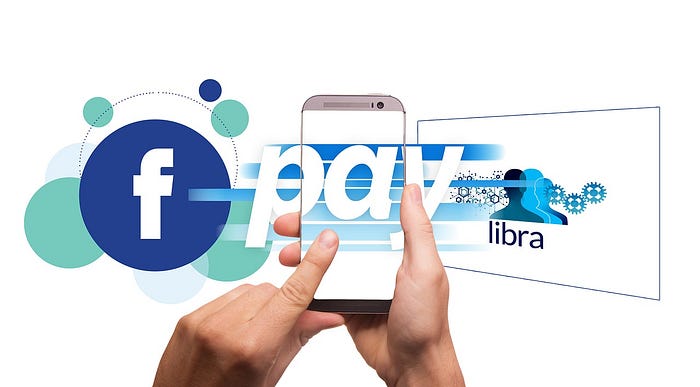
Now, a lot of people think that regulators around the world will manage to shut Libra down. Don’t hold your breath.
Libra isn’t going anywhere. Bitcoin pioneered a global cryptocurrency but came up extremely short. Facebook watched, and learned, and took notes. There’s a reason the Libra Association is based in Geneva, Switzerland. Who can touch them there?
And if, by some miraculous event, Congress does convince the Libra Association to back off and break up, some other crypto will take its place. The technology behind a global currency now exists, and there’s a demonstrated need for it.
But what on earth is it?
Libra for Moms
Think about the money you have in your bank account right now. It’s called dollars, or pounds, or Yen, or Rupees, or whatever. Now, is it actually physical money sitting in a locked drawer with your name on it in a bank vault somewhere? Of course not!
Instead, it’s digital. It’s all just numbers on a screen that a bank computer created.
Libra is like that. It’s a digital currency, only, there are no ATMs for you to turn those digits into actual cash in your hand.
Instead, it will all be on your account. And you can use Messenger or WhatsApp or even the Facebook app to send Libra to people.
What Facebook is building is nothing more than a new currency.
You heard that right.
It’s a currency just like dollars and Euros and pounds and yen. It will have its own value, and be used to buy goods and services.
In addition, because it’s digital and exists only online, it can travel across borders at the blink of an eye.
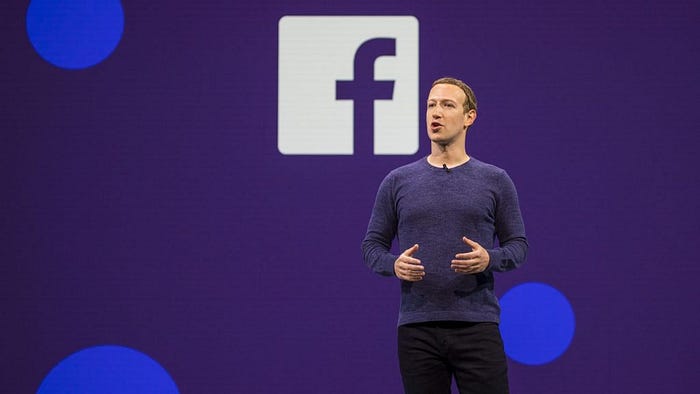
Facebook has a vision for Libra, too. In the Libra white paper, Facebook claims that Libra is designed to help the 1.5 billion people in the world without access to a bank account. They call these the “unbanked.”
In fact, the unbanked represent a massive social problem in our world. These people, most of whom live in developing countries, lack access to safe places to store their money. They can’t access loans or investments, and they are ripe for exploitation and abuse, whether from criminals or government (often one and the same in these countries).
We’ve seen how people in Greece and Venezuala turned to Bitcoin when their currency sharply devalued and banks closed down. So Facebook does have a point here.
Additionally, Libra purports to offer a seamless and nearly-free way to conduct transactions online. Whether you send money to relatives overseas using WhatsApp or you buy a coffee mug from a retailer on Instagram, Libra is how you’ll pay.
Calibra
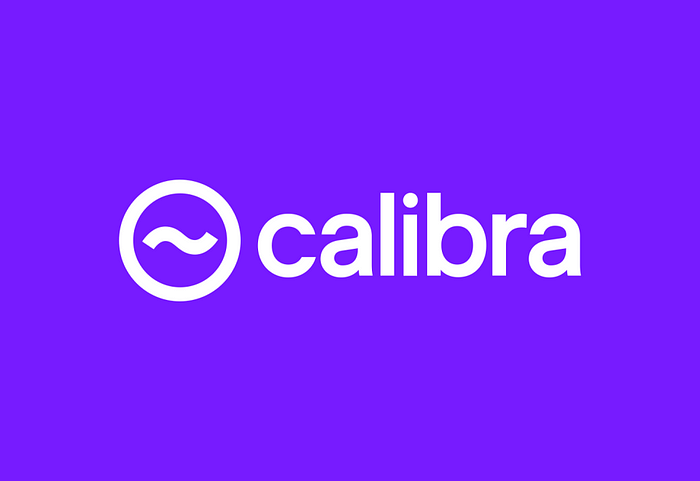
In case you were wondering how you’ll get into Libra, Facebook has an answer for that, too. It’s a digital wallet and payment gateway called Calibra, which Facebook is currently developing.
The idea is that you can have a Calibra app on your phone to make payments and exchange fiat currency for Libra. But Calibra won’t stop there.
In addition to a stand-alone app, Calibra will get built right into Facebook, Messenger, WhatsApp, and Instagram. That means you’ll have access to your Libra through all those apps. Someone buy you supper? Pay them back in Libra right in the Messenger app.
Facebook also says that the source code for Libra is open to third party developers, so it’s only a matter of time before we start seeing a whole world of “Libra included” apps and services.
The Libra Association
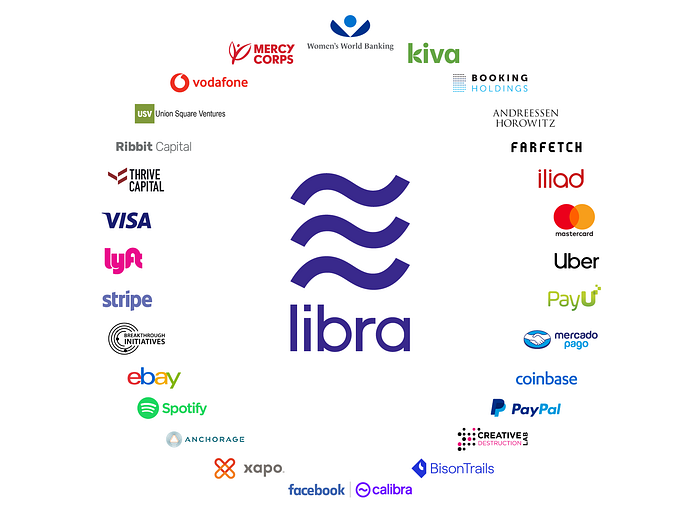
If you have concerns about Facebook managing a global currency the size and scale of Libra, then Mark Zuckerberg wants to allay your fears. To do that, he’s put together an organization of 28 major global firms to manage Libra. It’s called The Libra Association.
Members include payment companies such as Visa and Paypal, as well as major tech disrupters like Uber, Lyft, and Spotify. Then there are a few big NGO’s, including Women’s World Banking. All in all, the Libra Association reads like an all-star roster of huge corporations.
Which they need to be because, in order to join as a founding member, each company needs to commit $10 million to the Association.
The Association represents something different in the world. It represents some of the most powerful companies with global reach forming together to create their own currency. We’ve seen dystopian future movies about corporations ruling the earth. Could this be how it begins?
The Libra Reserve Fund
By this point, you may be wondering what’s stopping Libra from being a wild and zany cryptocurrency disaster, much like Bitcoin? That’s where the Libra Reserve Fund comes in.
The fund is how the Libra Association backs each and every Libra token that comes into existence. When you exchange $50 for Libra, that money gets deposited into the fund. That way, the Libra you own is worth $50 today and tomorrow. There’s hardly fluctuation.
In cryptocurrency-speak, that’s called a stablecoin. And the entire point of Libra is that it will be stable, thus a means of exchange. Merchants can fix their prices in Libra, knowing they won’t need to change the price every hour to keep up with fluctuations.
And that’s why a lot of merchants are excited about Libra. Here is a way to accept payments without paying a chunk of the sale to a third party. Moreso, Libra represents a way for online commerce to break free of Amazon.
The Libra Blockchain
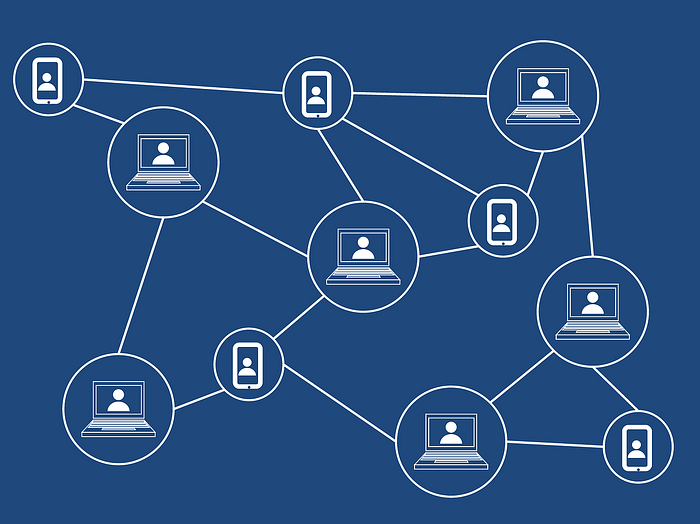
By now, mum, you’ve probably got a good grasp of Libra. Also, you probably don’t care too much about how that money gets moved around. But you should.
Here’s why.
When you buy something with PayPal, you basically ask PayPal for permission to use them to spend your money. But what if they decide “Yeah, nah?” PayPal has the power to freeze your funds, or worse.
Many people have lost money through PayPal thanks to scammers who continually abuse the system. The same could be said for banks, although they’re a little more secure (and they’re insured). But blockchain technology changes all of that.
A blockchain is basically a huge electronic public ledger. Think of what bookkeepers use to manage a company’s money. Every single transaction gets recorded in the ledger. Well, the blockchain is like that.
Only instead of being in a single book, the blockchain is spread across every computer, or node, that’s tied into the chain. This way, every single computer keeps a record of every single transaction.
Let’s simplify it.
Simple Blockchain explanation
Let’s say you and I have both have a node on our own private blockchain. It’s a two-person blockchain, but whatever.
Now, you have $100, and I have $100. Both of us write down that you have $100, and on a separate line, that I have $100. Let’s compare notes. Do they match? If so, great! Then it’s a fact that we have $100 each.
See?
The blockchain has to be in agreement for every transaction, or the transaction is false.
So now, I give you $100. Now we both write what happened and what the end result is.
- Son: $100 to mum
- Son: $0 balance
- Mum: $100 from son
- Mum: $200 balance
If we compare notes again, we see that they agree, so this did happen.
However, what if one of us were to change an entry?
Say I write that I have $50 after giving you $100, then our ledger entries won’t agree, and it’s obvious that I’m attempting to defraud the system. It won’t let me write that $50 balance.
Now, spread that across hundreds, or thousands, of nodes. Security is built-in.
And that’s how Libra will work.
Any Questions?
That’s basically how I explained the Libra cryptocurrency to my mom. Of course, we didn’t get into detail about congressional freakouts, the implications of Libra, and the paranoid kneejerk reaction of the general public to Zuck’s announcement.
Instead, we stuck with what we know for the time being. Libra is about to change the world. And guess what? My mom was totally into it. In fact, she’s stoked for Libra to arrive.
So now go and tell your mothers about Libra. You owe it to them, after all. This is a major shift in how the world works, and there’s no stopping it at this point.
Any questions?





